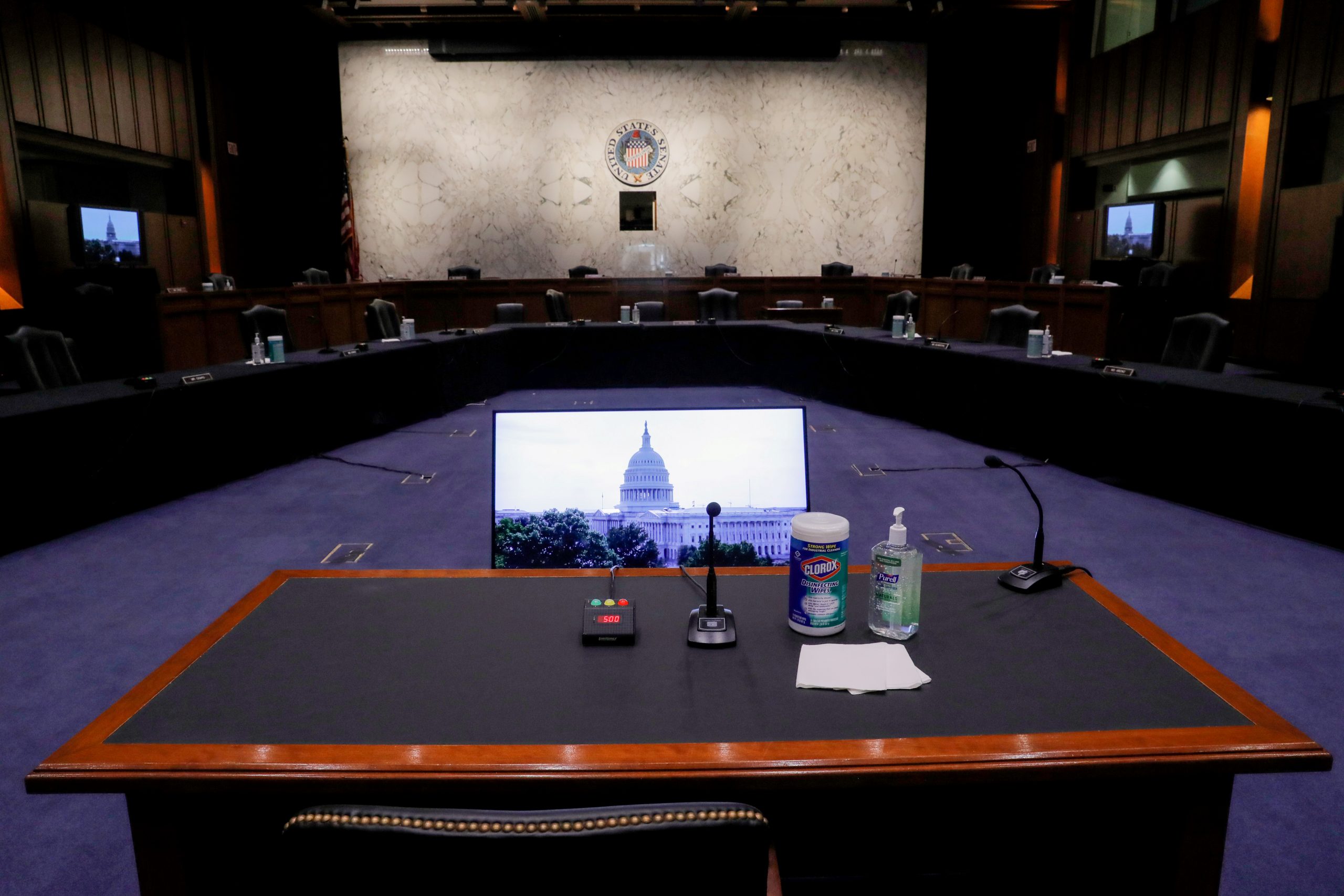Senate Republicans turn in earnest this week toward making good on President Donald Trump’s top objective in Congress ahead of the Nov. 3 election – placing his nominee Amy Coney Barrett on the U.S. Supreme Court and moving it even further to the right over furious Democratic objections.
A four-day Senate Judiciary Committee confirmation hearing for the conservative appellate court judge is set to begin on Monday, a key step before a final full Senate vote by the end of October on her nomination for a lifetime job on the court.
Barrett’s confirmation to replace the late liberal Justice Ruth Bader Ginsburg would create a 6-3 conservative majority on the court that could lead to rulings rolling back abortion rights, expanding religious and gun rights and upholding Republican-backed voting restrictions, among other issues.
Trump’s ability to reshape the Supreme Court will be one of the enduring achievements of his presidency. He is the first president since Ronald Reagan in the 1980s to get to make three additions to the nine-member court, and he has done it in a single four-year term rather than Reagan’s eight years.
The Senate’s Republican leaders rejected Democratic pleas to delay the hearing after two Republican Judiciary Committee members and Trump himself tested positive for the coronavirus in the days following his Sept. 26 White House ceremony announcing Barrett, 48, as his nominee.
Even after testing positive, Trump took to Twitter to urge Senate Majority Leader Mitch McConnell “not to delay, but to instead focus full time on approving” Barrett, a favorite of religious conservatives who make up a key voting bloc for him.
“We’re going to have all hands on deck for the Supreme Court nominee. It’s an extremely important thing for the country, and we intend to process the nomination and put her on the Supreme Court,” McConnell said at a news conference on Friday.
Barrett is scheduled to deliver her opening statement to the Senate Judiciary Committee on Monday, with senators also making opening remarks. Barrett is scheduled to face questions from senators on Tuesday and Wednesday, starting with Committee Chairman Lindsey Graham, for what promises to be grueling all-day sessions. The hearing is due to conclude on Thursday with outside witnesses testifying about her qualifications.
With Republicans holding a 53-47 Senate majority, Barrett’s confirmation seems assured. Democrats are still fuming that McConnell is hurrying to confirm Barrett as the election approaches after refusing to let the Senate even consider Democratic President Barack Obama’s nominee to fill a 2016 Supreme Court vacancy because it was an election year.
Graham has said his committee will likely vote on the nomination on Oct. 22, setting up a vote on the Senate floor by the end of the month.
OBAMACARE CASE
Democratic opposition to Barrett on policy issues has focused in part on her possible role in deciding a case before the Supreme Court in which Trump and Republican-led states are seeking to invalidate the Affordable Care Act healthcare law, often called Obamacare. Barrett could be on the bench when the justices hear oral arguments on Nov. 10.
A key Obamacare provision that would be thrown out if the court strikes down the law bars insurance companies from denying coverage to people with pre-existing conditions. Democrats have criticized Trump for seeking to end Obamacare protections amid a pandemic that has killed more than 210,000 Americans.
“People across our country are suffering and they are scared and they are asking to their leaders and asking what are you doing to help? Republicans’ answer is we are rushing another anti-healthcare judge onto the Supreme Court,” Democratic Senator Patty Murray told reporters on Friday.
Barrett also is expected to face Democratic questioning on abortion. In 2006 while teaching law at the University of Notre Dame, Barrett, a devout Catholic, added her name to an advertisement opposing “abortion on demand” that appeared in a local newspaper in Indiana. Christian conservative activists long have hoped for the court to overturn the landmark 1973 Roe v. Wade ruling that legalized abortion nationwide.
During her 2017 confirmation hearing to her current judgeship, Barrett said her religious faith would not affect her decisions on the bench.
Trump, who is running for a second term against Democratic challenger Joe Biden, has said he wants the court to have a full complement of nine justices to tackle any election-related legal disputes and possibly decide the outcome in his favor. The Supreme Court has had to resolve a U.S. presidential election only once, in 2000.
(Reporting by Lawrence Hurley; Additional reporting by David Morgan; Editing by Will Dunham)

























 Continue with Google
Continue with Google